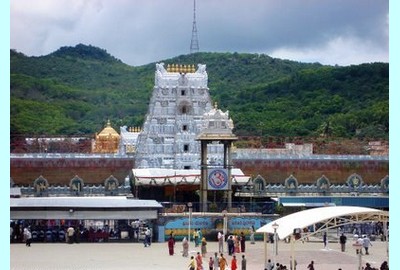Chaitra Shukla Shashthi, Kaliyug Varsha 5114
 |
Chennai: Members of a numismatic scholars’ committee, formed to segregate the huge collection of coins in the famous Tirupati Tirumala temple, have found that some of the earliest coins in the collection belonged to the Satavahana period and pre-Christian era.
The panel, which included 20 numismatic scholars from the south, has segregated more than 36 tonnes of coins from the total 48 tonnes in three sessions.
We have segregated about 36 tonnes of coins so far. The earliest coins found in the collection belonged to the Satavahana period, pre-Christian and the Chola era. The remaining 12 tonnes will be segregated in a couple of months, said T Sathyamurthy, one of the members in the team and vice president of South Indian Numismatic Society.
Sathyamurthy said the gold coins accumulated in the hundi (temple collection box) are found to be embedded in the necklaces of the god. The temple administration has stored a huge amount of copper and lead coins in the nearby treasury. The temple is administered by the Tirupati Tirumalai Devasthanams.
It was in January 2011 that the administration decided to segregate the ancient coins from the collection due to lack of storage facility in the treasury.
The coins during the Nayak cover the major share. Others include coins of Bahmani, Khilji, Chatrapathi Sivaji, Qutub Shahi, Mysore Wodayars, Travancore kings, East India Company and Dutch India Company, Sathyamurthy said, adding that modern coins from as many as 60 countries, including the Middle-East, Africa, US, UK, Australia, Canada, Malaysia, Singapore, Thailand and the Philippines are also found in the collection.
We are planning to display the rare coins in the two museums here. We are actually working on how to do it, said J Vijayakumar, chief museum officer of the Sri Venkateswara Museum, Tirupati.
Source: Economic Times





